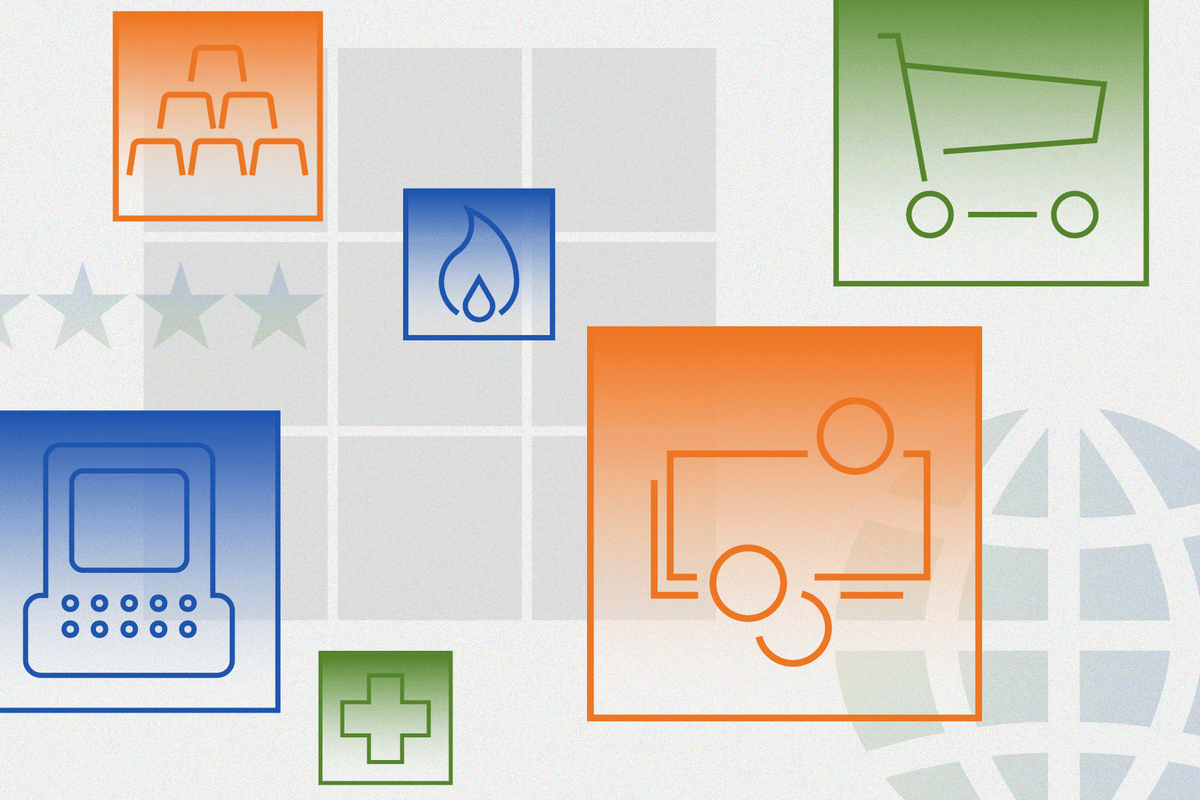Ruth Saldanha: Investing sometimes seems complicated, but the one thing that investors take for granted is that active refers to mutual funds, while passive means ETFs or exchange-traded funds. However, active ETFs are challenging that notion. If you've been thinking that active ETFs seem to be everywhere, you're not wrong. Why? Ryan Jackson is a manager research analyst for passive strategies at Morningstar Research Services. He is here today to talk about what he has found. Ryan, thanks so much for being here today.
Ryan Jackson: Of course. Thanks for having me.
What’s Behind the Boom in Active ETFs?
Saldanha: So, what's behind this boom in active ETFs?
Jackson: So, you said it well, active ETFs are everywhere. And when you look at their rise, I think there are two main factors that we can point to. Number one, there are just far more active ETFs available to investors than there was recently as a few years ago. Since the start of 2022, we've seen about as many active ETF launches as we did over the 10 years preceding 2022. So, there's no doubt there's been this real boom in active ETF development. So, simply by virtue of just putting a lot more and frankly a lot more good products on the shelves for investors, we seem quite a rush into them. So, that's the first part of it.
The second is I think you could just point to the fact that ETF investors are really starting to catch on to the benefits that come with the ETF wrapper. Talk about these a little bit more later, but when you look at the cost, tax efficiency, the transparency, I think these are things that a lot of times folks always thought were just part of the ETF passive intertwinement, but in reality, those are just the ETF vehicle themselves. They absolutely apply to the active ETFs as well.
Advantages of Active ETFs Over Mutual Funds
Saldanha: So, let's talk about why these products, which you call good products, are good for Canadian investors. What are some of the advantages of active ETFs over mutual funds?
Jackson: Sure. So, when you look at the ETF structure, I think the first important benefit that we should call out is that they tend to be cheaper than mutual funds. Now, this is something, again, that people a lot of times associate with the passive element that comes with ETFs in investors' minds. But even if you compare active ETFs to active mutual funds, in many cases, active ETFs are going to have that cost advantage. The reason for that is the fees that ETFs charge really just reflect the cost of managing the funds. On the other hand, when you look at open-end fund fees, they not only incorporate that management expense, but also some distribution, some marketing, some record keeping costs, a whole range of other things that sort of leave those mutual fund fees more bloated than ETFs. So, overall, definitely the cost advantage when it comes to active ETFs over active mutual funds.
Another one to point to would be transparency. Open-end funds tend to disclose their holdings on a monthly basis, sometimes on a quarterly cadence, but for ETFs, most of them are going to show their holdings on a day-to-day basis. I don't always think it's a good thing for investors to know exactly what their fund is holding every day, that maniacal focus isn't always necessary, but I think this one really resonated with the advisor community. When they have clients calling asking, how much of this do I own – perhaps one stock had a really bad day – they want to be able to answer that question as quickly and as effectively as they can. ETFs help them do that. Open-end funds, because of that some more opaque structure, don't always give them that advantage.
Then the last one I would point to would be accessibility. For open-end funds, especially those that are really well-known, successful strategies, there are oftentimes investment minimums that can be prohibitive for retail investors who just want to have some skin in the game. For ETFs, really all you need is a brokerage account and in most cases, just a couple of hundred bucks to get invested. As we've seen, the investor demographic skew a little bit younger, a little bit lower-income over the past couple of years after the pandemic. I think this has really made ETFs the vehicle of choice among that crowd.
Disadvantages of Active ETFs Over Mutual Funds
Saldanha: On the flipside, what are some of the disadvantages of active ETFs versus mutual funds?
Jackson: Sure. The big one would be that ETFs can't close their doors to any new investment coming in. This leads to what are called capacity issues when the size of the fund sometimes makes it a little bit hard to execute the strategy that you want to. So, ETFs can't shut off their new doors, but open-end funds, when they see these problems start to rise, see the writing on the wall, they can close off to new investors and continue to execute the strategy they want in a nimble fashion. There haven't been many instances of this coming into play for ETFs, but for those that are considering maybe getting a new and active smaller cap ETF or something that invests in a more liquid market, that's a really important thing to consider, will this strategy get compromised down the road if it grows too large?
The other one would be that not all investments available to open-end funds are available to ETFs. There are certain structures that are off limits for ETFs. The most notable among them would be private company investments. There are a lot of active strategies that lean on that as a good source for generating extra returns. If ETFs are trying to deploy in the same strategy in an ETF vehicle, that might be a little bit of a hurdle that they'd have to overcome.
Who Should Buy an Active ETF? How to Decide?
Saldanha: So, let me ask you this, for Canadian investors who are trying to decide between active ETFs, mutual funds or even passive strategies, what should they keep in mind?
Jackson: I think investors need to remember that strategy should come first, investment vehicle could come second. ETFs and open-end funds at the end of the year are just wrappers for investment strategies. I don't think investors need to be so worried about leaning into one vehicle so much as that they should focus on buying a strategy that they really feel convicted in. We like to say that best strategy is one that you can stick with. If you're settling for an ETF because it's an ETF, not because you like the strategy, I think there's a better chance that you're going to sell at precisely the wrong time and not be able to capture those returns that you otherwise would. So, think about what strategy you really believe in, you really feel confident sticking with and that should inform the decision.
Saldanha: Thank you so much for being here today, Ryan.
Jackson: Yeah, my pleasure.
Saldanha: For Morningstar, I'm Ruth Saldanha.





:quality(80)/cloudfront-us-east-1.images.arcpublishing.com/morningstar/Z34F22E3RZCQRDSGXVDDKA7FGQ.png)



:quality(80)/cloudfront-us-east-1.images.arcpublishing.com/morningstar/VIRI5WCXLJBHBDMWTZCH3P7QKY.png)










